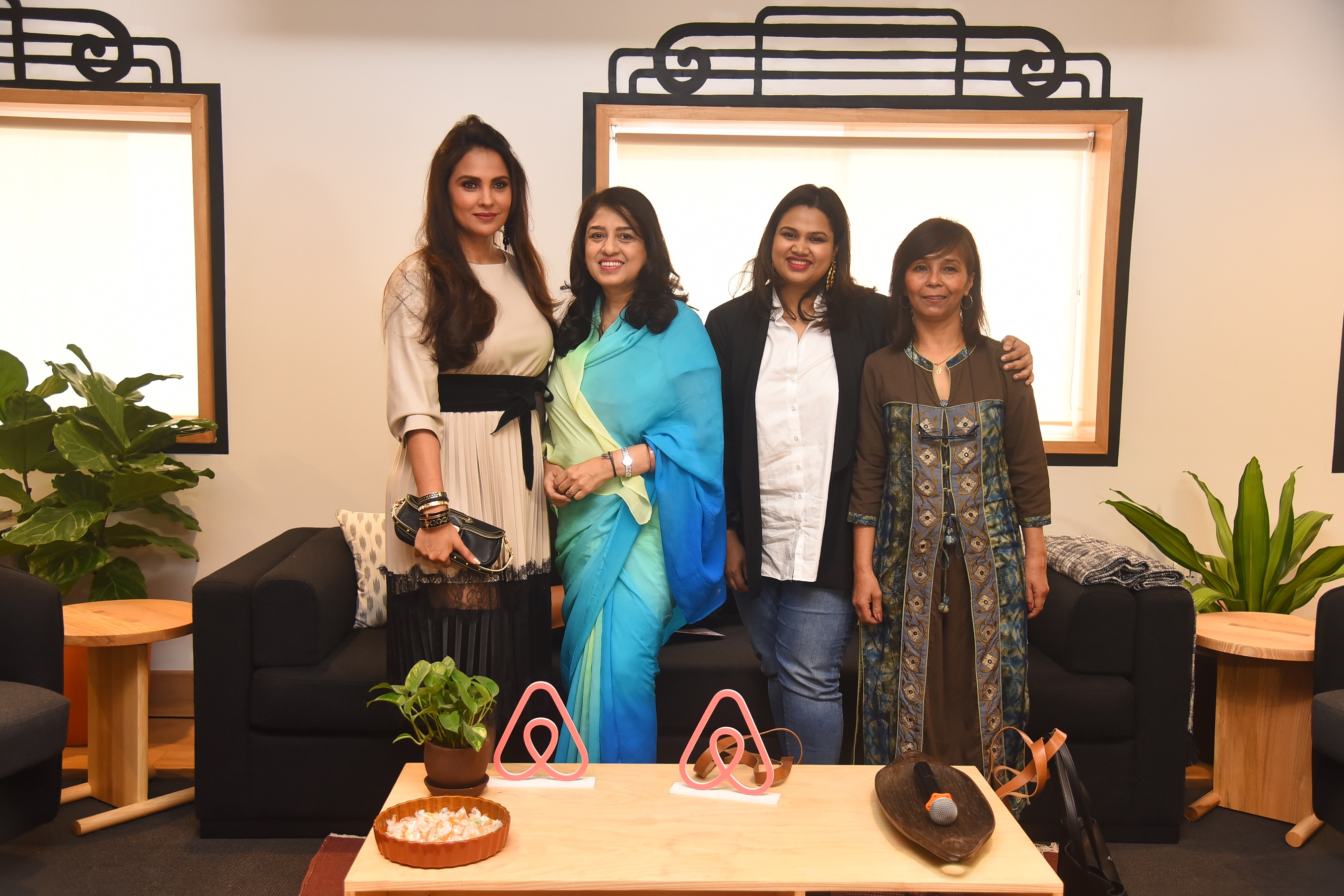In 2020, it seems obvious that women should get equal pay, opportunities to study and work, access to vital services and freedom over their bodies and lives. After all, it’s been 127 years since women were first allowed to vote; 57 years since the first woman went into space; and 48 years since a Fortune 500 company first had a woman CEO.
In reality, the transition towards a world with gender parity remains a slow, grinding slog. The recently-released World Economic Forum (WEF) Global Gender Gap Index 2020 report says that global gender parity could still be—believe it or not—another century away. The same report also placed India at 112th position among 153 economies in terms of gender equality.
So what does it mean to be an Indian woman dealing with staggering inequalities at work, home and in society? To find out, Thrive Global caught up with three extraordinary women from three different spheres of life at Airbnb’s #HostWithHer panel on March 5, 2020 in Mumbai: pastry chef and entrepreneur Pooja Dhingra; Executive Director of the Princess Diya Kumari Foundation, Shivina Kumari; and Airbnb host from Meghalaya, Anne Jyrwa.

Why Equality Matters
The theme of International Women’s Day 2020, observed on Sunday, was Each for Equal. While the gender gap is evident on several fronts, the economic gap especially stands out. Indian women have one of the lowest labour market participation rates in the world—only about 25% of women in India are actively working or looking for work, compared to 82% of men. Those who do work earn (on average), about one-fifth of a man’s income, according to the WEF report.
One of the Indian states facing historical gender inequalities is Rajasthan, where a recent government report showed 20% of girls aged 15-16 drop out of school, and where the female literacy rate, at 52%, is significantly below the national average of 66%.
Shivina Kumari’s organisation PDKF has conducted entrepreneurship and skill training programmes for hundreds of women and girls from underprivileged families in the state. She says, “There are many socio-cultural barriers in Rajasthan. In many less-privileged families, sons are sent to private schools and girls to free government schools. In educated families too, socio-cultural barriers exist.”
To illustrate the difference education can make, Shivina shares that 90% of the girls her foundation worked with, had never operated a computer before. But when properly trained, 99% of them scored A+ in a test of their skills!
Unsurprisingly, the fact that investing in women has some very real benefits has been corroborated several times, and at much larger scale, by several studies. A few years ago, the International Monetary Fund found that European firms with more women in leadership positions were more profitable. And a 2018 McKinsey Global Institute report said India could add $770 billion to its GDP by 2025 simply by giving equal opportunities to women.
Having more women owning businesses is also great for the employment market and overall economy. A recent Bain & Company-Google report said that by having more women entrepreneurs, India has the opportunity to create 15-17 crore jobs by 2030. In times of slowing economic growth, we clearly need more women starting and running their own businesses.
Pooja Dhingra, who owns Le15 Patisserie, says that entrepreneurship can be tremendously liberating for women. She has overcome scepticism multiple times herself since starting up her business at age 23. Most notably a government official, on learning that she was the owner, asked if her “husband was dead”. For her part, Pooja has learnt to go beyond the so-called traditional gender USPs and create a work culture in her organisation that is driven by merit alone.
“It’s about understanding each individual’s strengths and utilising that in the workplace. For example, the traditional perception is that women chefs should be in pastry, while ‘hot’ kitchens are a man’s domain. But in our Patisserie, the kitchen is headed by a girl,” says Pooja, who believes that equality starts at home, in the way we treat our sons and daughters.
Nowhere is this more evident than in Meghalaya, a matrilineal society where women have greater rights and face fewer taboos. Anne Jyrwa, an Airbnb Superhost from Shillong, says that most of Meghalaya’s workforce is female. “Also, when a couple gets married, the husband leaves his home to go and live with his new wife!” she smiles.
However, the situation is not perfect—domestic violence is a rising problem in Meghalaya, and access to higher education remains a problem for both men and women. “It is important for us to invest in education so that top jobs don’t remain restricted to a privileged few,” Anne says.
Calling women the ‘untapped economy’, Shivina Kumari says that while young, urban women are already demanding a seat at the table, we need to focus more on villages and the informal economy, which accounts for the overwhelming chunk of female workers. “When you invest in women, you help whole families, communities and villages,” Shivina says.
The last century has seen stereotypes and biases against women gradually disappearing. However, we are now in an age of accelerated adoption of new ideas. This is the world’s chance to close the gender gap and enable all individuals, communities and economies to thrive.
For more wellness, performance, growth and motivation resources for women, keep reading Thrive Global India.


